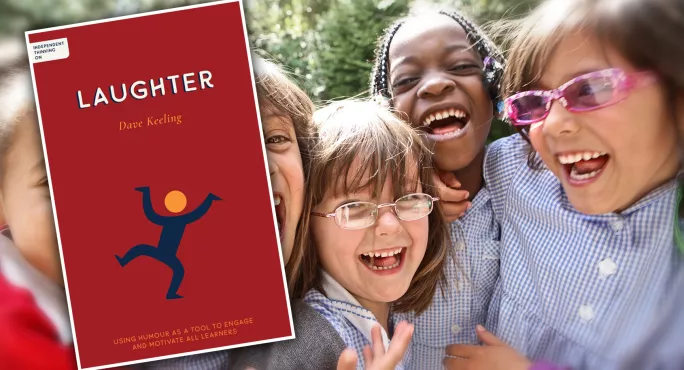Author: Dave Keeling
Publisher: Crown House Publishing
Details: 144pp, £9.99
ISBN: 9781781353417
Humour, like a good Swiss watch, tends not to work when it’s taken apart. And to be fair, Keeling, a self-proclaimed “stand-up educationalist”, acknowledges this in his opening chapter.
He is also cheerful and positive and urges his readers to keep an open mind as they read.
“But, Dave, mate,” I want to say, “you kicked off with a description of yourself that makes you sound like David Brent…Please forgive me if I don’t get just a little hacked off with this.”
What’s more, Keeling is an actor and performer by trade. He is not, and never has been - and for me, this is pretty crucial - a classroom teacher.
Despite this, he gives eight reasons why humour in the classroom is important, although number two - “allowing for better retention” - is a bit of stretch, to put it mildly.
However, even for some of the less grandiose claims, I’m not convinced that presenting difficult material with a comical twist makes learning stick more than clear explanation, careful modelling and practice.
Still, Keeling has it right about using humour to de-escalate situations, build resilience and build positive relationships - but I wish he’d stopped there.
There’s some neuroscience about how humour connects one side of the brain to the other and the production of endorphins, but overall, it feels as though he has missed the point.
Endless punchlines fall flat
The book is full of energy, ideas and lists, and even the suggestion for a comedy kitbag that would include “wig(s), comedy specs and a sponge hammer, always useful to bash out an answer from students who are too fond of the ‘I dunno’ response”.
Although this caused great hilarity in my house when we read it aloud to each other in the style of Alan Partridge, my heart froze at the thought of an earnest NQT following this guidance in the name of fun.
Keeling’s writing style is also relentless. After every point, he makes a joke: “[Endorphins]…are naturally occurring neurochemicals that produce a feeling of well-being and are released during the consumption of spicy foods, exercise, excitement, pain, love and orgasm. But enough of my weekend.”
By the time I’d finished the book, I was worn out. To paraphrase Victoria Wood, I felt like I’d been trapped in a lift with a hula-hoop salesman.
Keeling means well; he clearly intends to make the classroom a happier place but, frankly, I don’t want to be there when the laughter stops.
Sarah Ledger has been teaching English for 33 years. She tweets @sezl
You can support us by clicking the book’s title link: we may earn a commission from Amazon on any purchase you make, at no extra cost to you




